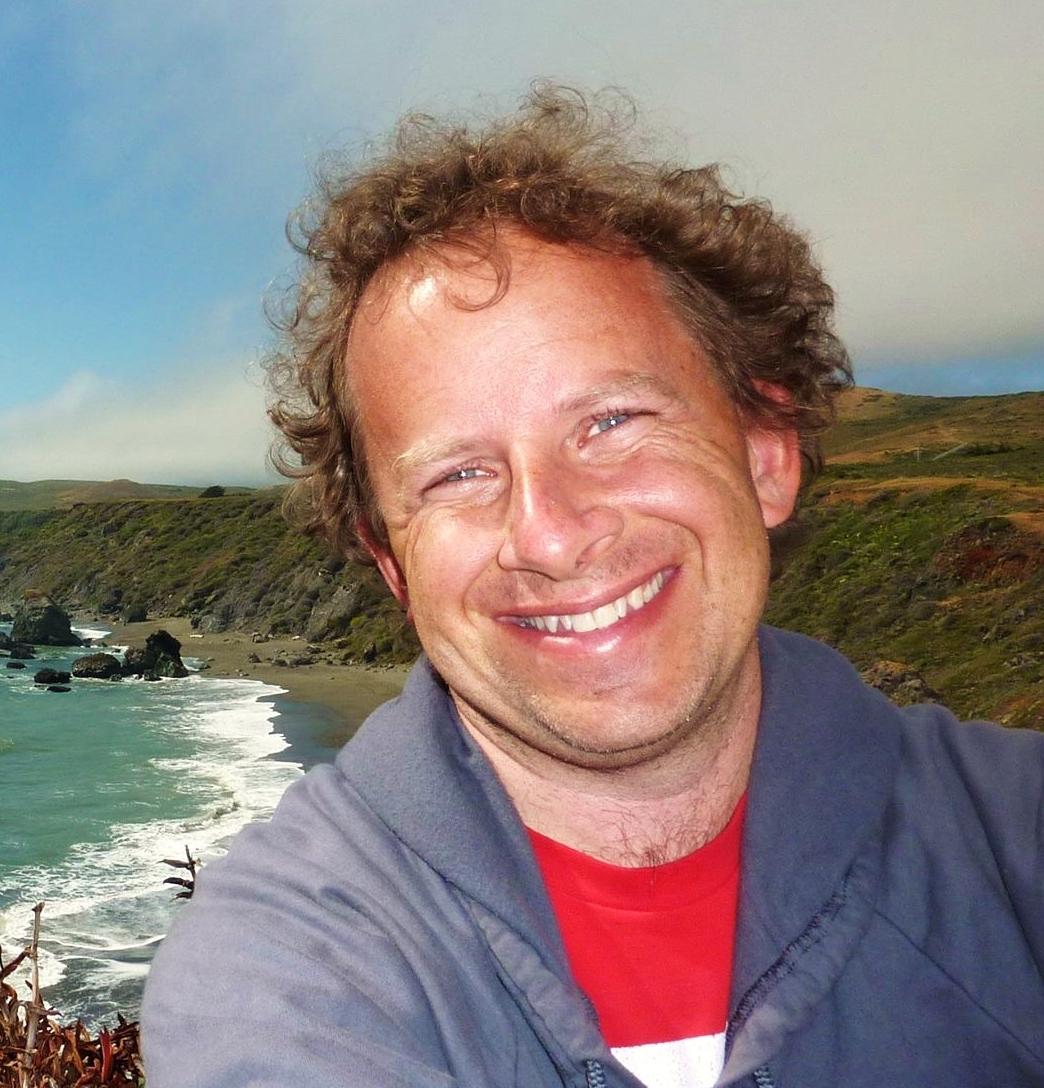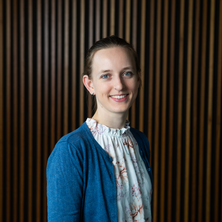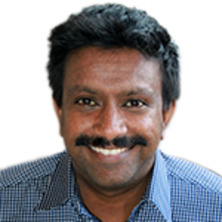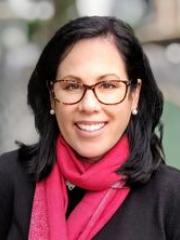Have you ever wondered how deep learning impacts on our daily activities – including things like web searches, image searching, virtual assistants and even deep-fakes? We'll have the answer at this Ask Me Anything session.
Speakers
Honorary Professor Jeremy Howard
 Jeremy Howard is a data scientist, researcher, developer, educator, and entrepreneur. Jeremy is a founding researcher at fast.ai, a research institute dedicated to making deep learning more accessible, and is an honorary professor at the University of Queensland. Previously, Jeremy was a Distinguished Research Scientist at the University of San Francisco, where he was the founding chair of the Wicklow Artifical Intelligence in Medical Research Initiative.
Jeremy Howard is a data scientist, researcher, developer, educator, and entrepreneur. Jeremy is a founding researcher at fast.ai, a research institute dedicated to making deep learning more accessible, and is an honorary professor at the University of Queensland. Previously, Jeremy was a Distinguished Research Scientist at the University of San Francisco, where he was the founding chair of the Wicklow Artifical Intelligence in Medical Research Initiative.
Jeremy was the founding CEO of Enlitic, which was the first company to apply deep learning to medicine, and was selected as one of the world’s top 50 smartest companies by MIT Tech Review two years running. He was the President and Chief Scientist of the data science platform Kaggle, where he was the top ranked participant in international machine learning competitions 2 years running. He was the founding CEO of two successful Australian startups (FastMail, and Optimal Decisions Group–purchased by Lexis-Nexis). Before that, he spent 8 years in management consulting, at McKinsey & Co, and AT Kearney. Jeremy has invested in, mentored, and advised many startups, and contributed to many open source projects.
He has many media appearances, including writing for the Guardian, USA Today, and the Washington Post, appearing on ABC (Good Morning America), MSNBC (Joy Reid), CNN, Fox News, BBC, and was a regular guest on Australia’s highest-rated breakfast news program. His talk on TED.com, “The wonderful and terrifying implications of computers that can learn”, has over 2.5 million views. He is a co-founder of the global Masks4All movement.
Dr Alina Bialkowski
 Dr Alina Bialkowski is a computer vision & machine learning researcher developing interpretable machine learning models to increase the performance and transparency of Artificial Intelligence (AI) decision-making. Her research interests include quantifying and extracting actionable knowledge from data to solve real-world problems and giving human understanding to AI models through feature visualisation and attribution methods. She has applied these techniques to various multi-disciplinary applications such as medical imaging (including imaging strokes in the brain using the new sensing modality of electromagnetic imaging), modelling human attention in driving, intelligent transport systems (ITS), intelligent surveillance, and sports analytics.
Dr Alina Bialkowski is a computer vision & machine learning researcher developing interpretable machine learning models to increase the performance and transparency of Artificial Intelligence (AI) decision-making. Her research interests include quantifying and extracting actionable knowledge from data to solve real-world problems and giving human understanding to AI models through feature visualisation and attribution methods. She has applied these techniques to various multi-disciplinary applications such as medical imaging (including imaging strokes in the brain using the new sensing modality of electromagnetic imaging), modelling human attention in driving, intelligent transport systems (ITS), intelligent surveillance, and sports analytics.
Dr Bialkowski holds a PhD and BEng (Electrical Engineering) from the Queensland University of Technology, Australia. Her doctoral studies were in characterising group behaviours from visual and spatio-temporal data to enhance statistics and visualisation in sports analytics as well as intelligent surveillance systems. She spent a year at Disney Research Pittsburgh where she developed techniques to automatically analyse team sports, followed by 2.5 years as a postdoctoral researcher at the University College London, developing deep neural networks to better understand human perception and attention in driving, before joining UQ in late 2017.
The impact of her research is evidenced by the high number of citations to her work (>1000 citations and an h-index of 16 according to Google Scholar) and awards including a best paper prize in 2017 at WACV (a top computer vision conference). In addition to high impact journals and conferences, her work has resulted in 6 international patents filed with Disney Research, Toyota Motor Europe, University College London, and The University of Queensland.
Dr Shakes Chandra
 Shakes' expertise include image processing, machine/deep learning, artificial intelligence (AI), image reconstruction and medical image analysis. He received his Ph.D in Theoretical Physics from Monash University, Melbourne in 2010 on a discrete theory of the Radon transform that utilises circulant matrices. He did a post-doctoral fellowship with CSIRO, Brisbane within the biomedical imaging group on musculoskeletal imaging. More specifically, he developed deformable model and machine learning algorithms for knee, hip and shoulder joint segmentation for deployment on the Siemens Syngo platform. He is currently a Senior Lecturer and leads a team of 10+ researchers working image analysis and AI research across healthcare and medicine. He currently teaches the computer science courses Theory of Computation and Pattern Recognition and Analysis.
Shakes' expertise include image processing, machine/deep learning, artificial intelligence (AI), image reconstruction and medical image analysis. He received his Ph.D in Theoretical Physics from Monash University, Melbourne in 2010 on a discrete theory of the Radon transform that utilises circulant matrices. He did a post-doctoral fellowship with CSIRO, Brisbane within the biomedical imaging group on musculoskeletal imaging. More specifically, he developed deformable model and machine learning algorithms for knee, hip and shoulder joint segmentation for deployment on the Siemens Syngo platform. He is currently a Senior Lecturer and leads a team of 10+ researchers working image analysis and AI research across healthcare and medicine. He currently teaches the computer science courses Theory of Computation and Pattern Recognition and Analysis.
Dr Caitlin Curtis
 Caitlin Curtis is interested in science and technology and its impacts on society. She comes from a robust science foundation in genomics with subsequent training and experience in policy and communication. More recently, her work has expanded to be more interdisciplinary, investigating the impact of science and emerging technology on society - with a particular focus on trust in artificial intelligence and emerging genomics technologies She has a deliberate focus on public and stakeholder engagement to foster the important debates required for the responsible introduction of technology.
Caitlin Curtis is interested in science and technology and its impacts on society. She comes from a robust science foundation in genomics with subsequent training and experience in policy and communication. More recently, her work has expanded to be more interdisciplinary, investigating the impact of science and emerging technology on society - with a particular focus on trust in artificial intelligence and emerging genomics technologies She has a deliberate focus on public and stakeholder engagement to foster the important debates required for the responsible introduction of technology.
About Ask Me Anything Series
Ask Me Anything Series is your opportunity to ask those burning questions about artificial intelligence.
